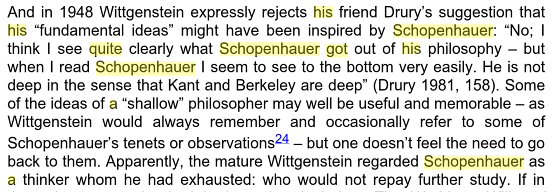He is calling Schopenhauer dumb.
One could call Schopenhauer a quite crude mind. I.e., he does have refinement, but at a certain level this suddenly comes to an end & he is as crude as the crudest. Where real depth starts, his finishes.
One might say of Schopenhauer: he never takes stock of himself.
The full text of the quote can be found here
Philosophy unravels the knots in our thinking; hence its results must be simple, but its activity is as complicated as the knots that it unravels. -- Ludwig
From the link above with the entire quote you can find the following passage :

You can try to say there is more here, claim that is how it is, that there is some deeper meaning to this quote, but I have yet to encounter any reason why there is more here. In fact those that have made such claims, have the very knots that Wittgenstein is trying to untangle within their thoughts.
From Culture and Value - L.W :

He is calling Arthur dumb, plain and simple. Not just dumb, but among the dumbest.
His choice of the word crude adds yet another jab, as it was one of Schopenhauer's go to words when taunting the intellect of those he thought beneath him.


